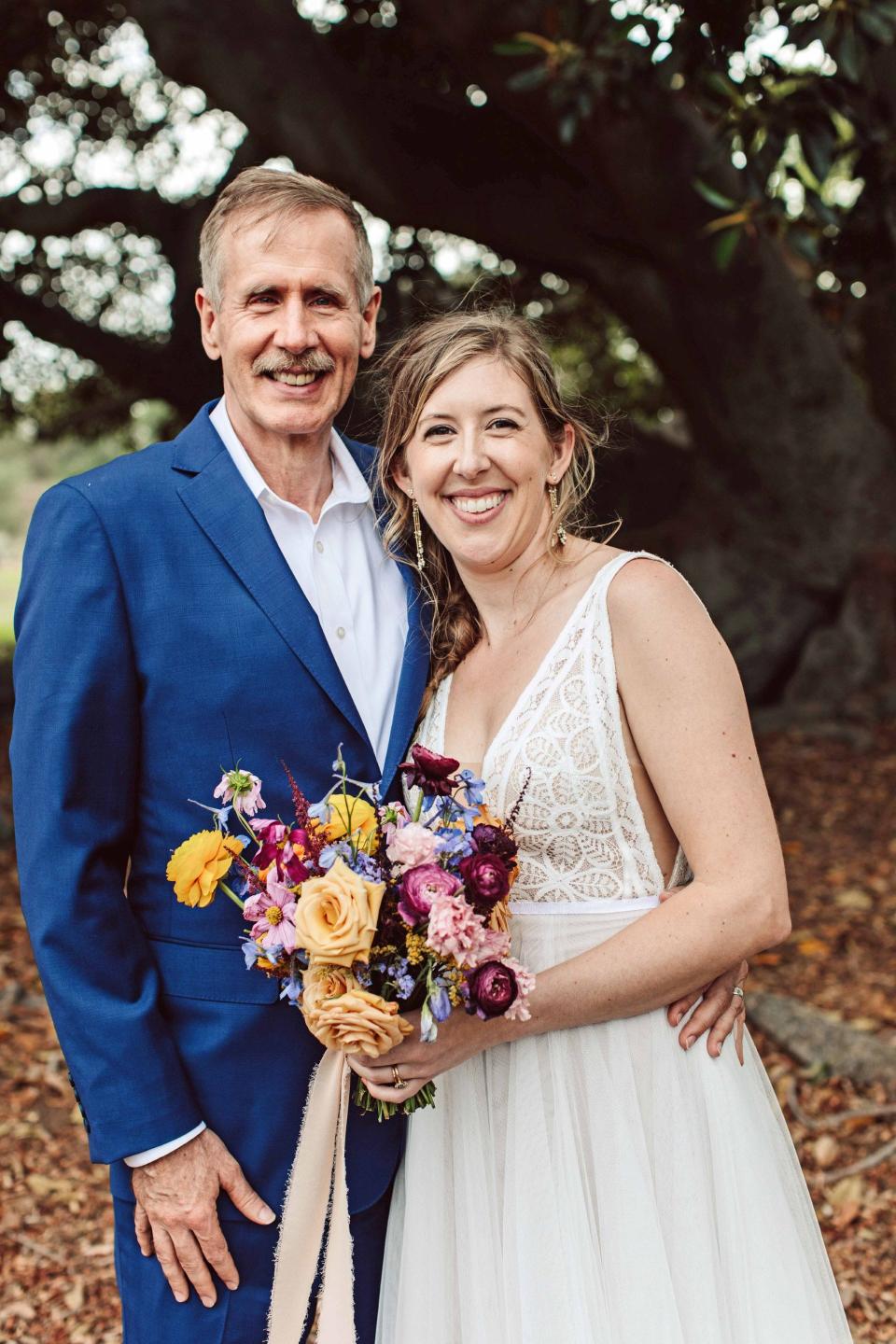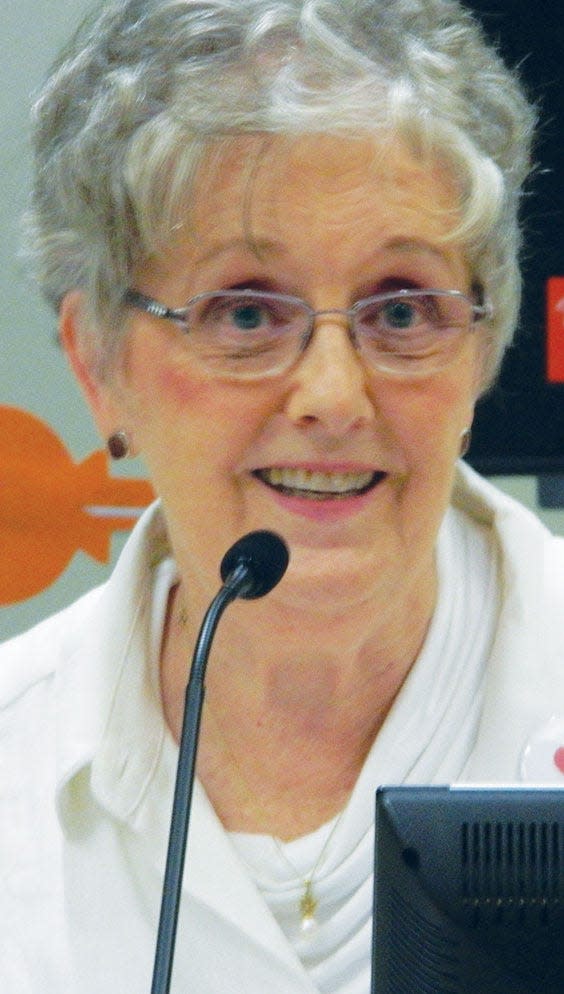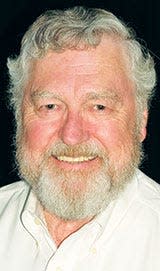ORHS grad Don Johns: 'I have lived the American dream'
Retired Oak Ridge High School teacher Benita Albert continues her story on Don Johns by detailing the many medical drug breakthroughs he has been a leader in producing. Enjoy the conclusion of this amazing story.
***
Interviewing Donald "Don" Johns almost five decades after his ORHS graduation, I marvel at the energy and passion he has brought to his medical career. While at Vanderbilt University, Don returned to Oak Ridge during the summer of 1977 for an Oak Ridge Associated Universities (ORAU) summer internship in the Math Group at the Oak Ridge National Laboratory, where he researched modeling in cryosurgery. Graduating in 3.5 years from Vanderbilt, Don used the nine-month hiatus before starting medical school working as a nightshift orderly at the Oak Ridge Methodist Medical Center (ORMMC) and taking courses at the Oak Ridge Graduate School of Biological Sciences during the day.

Among Don’s many claims to fame is the fact that he was the first person accepted to Yale Medical School from Vanderbilt University. Don, an ORHS Class of 1975 graduate, laughed when recalling this, describing himself as a “reverse carpetbagger who lived his entire life in Tennessee before migrating north to New Haven, Connecticut.” He said he felt doubly motivated to prove himself to fellow Eli med students. And prove it he did, by graduating first in his Yale Med Class of 1983.
It was my great privilege to be among the first to hear of his acceptance to Yale Medical School. I was a patient at ORMMC in mid-May 1979, having given birth to my first child. Adding to this joyous occasion was a late evening visit by a smiling young hospital orderly, my former ORHS student. Don came to celebrate the birth of my daughter and to share his just-received news that Yale Medical School, his first-choice preference, had accepted him.
I remember that we talked about his Yale pre-admission interview and the fact that the interviewers were intrigued that his undergraduate major was mathematics and that he was from Tennessee, two things they had rarely seen in applicants. I could not have been prouder for Don. I knew then that his intellect and drive would contribute significantly to advances in medical practice and research. And that he has done, making his own career pathway unique in design and accomplishments.
His internship in Internal Medicine and his residency in Adult Neurology were completed at the prestigious Massachusetts General Hospital (1983-1987) in Boston. Of this four-year experience, Don said, “It was very challenging! The clinical work load was crushing, yet we were given lots of autonomy and responsibility. It prepared me well for success during the rest of my career.” While in residency, Don published a first author paper in the New England Journal of Medicine highlighting the re-emergence of neurosyphilis in the setting of HIV infection.
From 1987-1993, Don served on the faculty of Johns Hopkins School of Medicine, where he was involved in patient care, teaching medical students and neurology residents, and laboratory research: the academic medicine “triple threat” for a physician-scientist. He did seminal research in the emerging field of “mitochondrial medicine” in which a wide array of diseases are caused by mutations in mitochondrial DNA (mtDNA). The brain and eyes are among the most commonly affected organs in mitochondrial diseases.
He was recruited back to Boston as an Associate Professor of Neurology and Ophthalmology at Harvard Medical School (1993-2004) and as the Founding Director of the Division of Neuromuscular Disease at Beth Israel Deaconess Medical Center. His new Massachusetts license plate was “MTDNA” in honor of his continuing work in this emerging field. He continued his clinical, teaching, research, and administrative duties there. In 2000, Don became an Associate Director at the Center for Integration of Medicine and Innovative Technology (CIMIT) in Boston, a collaborative effort including scientists, physicians, industry, and government to accelerate healthcare innovations, particularly in the development of medical devices.
After a long academic career, Don wanted to advance the therapeutics of the debilitating neurological diseases that afflicted his patients. He was among the first physician-scientists to be recruited to the newly formed Novartis Institutes of Biomedical Research (NIBR) in Cambridge, Massachusetts and Basel, Switzerland, the research center of excellence for the large multinational pharmaceutical company.
Don was Vice President and Global Head of Neuroscience and Ophthalmology Translational Medicine. He led drug development and clinical pharmacology teams with responsibility for First-in-Human through Proof-of-Concept clinical studies for all neuroscience compounds. During his tenure, he developed three new drugs that reached the market: two for the treatment of Multiple Sclerosis and one for Alzheimer’s Disease. While Don retained residency in the United States, he spent one week of each month in Switzerland. He described his experience as a culturally enriching opportunity to lead a multi-disciplinary group of international experts and to learn to speak multiple languages.
In 2014, Don was hired as a Vice President for Biogen, a large biotechnology company, where he established and lead the Amyotrophic Lateral Sclerosis Innovation Hub (ALS iHub) for the next 2.5 years. His team patented a novel ALS clinical outcome measure. In April 2023, the U.S. Food and Drug Administration (FDA) gave approval to Biogen for Qalsody, a drug that targets a specific genetic form of ALS and which requires injection directly into the cerebrospinal fluid.
Don participated in the original Ice Bucket Challenge, a fundraiser in support of ALS in which participants are doused with ice water, and his Challenge was broadcast on live national TV on CNBC. Not only had he attended to the needs of ALS patients as a physician, he researched and contributed to therapeutic guidelines and treatments for the devastating disease. Don also led the team that developed and obtained FDA approval of Spinraza, the first treatment for the devastating childhood disease Spinal Muscular Atrophy (SMA).
In 2017, Don established his own drug development consultation service, Axon Guidance LLC, and began to work with a number of pharmaceutical companies, predominantly biotechnology firms. He subsequently served as Chief Medical Officer at several biotechnology start-up companies. Don is a respected expert in matters of drug development, New Drug Application (NDA) registrations, business development, and Proof-of-Concept feasibility. He has three decades of experience in patient care, teaching, and research overlapped by a nearly two-decade career in pharmaceutical development and research. He is credited with the development of five FDA-approved drugs, he is an inventor on 17 filed or issued patents, and he has delivered more than 200 talks worldwide.
Over his stellar career, Don has seen many changes in medicine. I asked him to identify a couple that stood out for him.
His first example: “I was in residency at Mass General when HIV was discovered, and the AIDS epidemic occurred. I volunteered in the AIDS ward at Johns Hopkins when the diagnosis was essentially a death sentence. Now the disease has been effectively treated through concerted drug development of highly active antiretroviral therapies (HAART).”
His second example: “When I was a med student at Yale, I took care of a patient with acute inflammation of the optic nerve known as Optic Neuritis. Optic Neuritis can be one of the most common presentations of Multiple Sclerosis (MS), but at that time there were no effective therapies for MS. I was sternly warned by my attending physician to not mention MS or pursue it further. Fast forward 25 years and I have developed two highly effective treatments for MS, and we attempt to diagnose it as soon as possible.” Don touted the importance of a robust pharmaceutical industry that has been essential to the development of novel drug therapeutics, including the recent COVID-19 vaccines and antiviral medications.
In response to my question on the effects of the COVID-19 pandemic on his work, Don said, “Our first-in-human clinical studies were halted due to COVID-19 in the Netherlands. However, we were able to move them quickly to Australia and New Zealand, which have excellent clinical research organizations and where COVID-19 was under control.”
Don splits his time between Boston and New York City where his wife, Kathryn A. Colby, M.D, Ph.D, is a Professor and Chairman of Ophthalmology at the New York University Grossman School of Medicine. Their family includes three adult daughters, all of whom have advanced degrees, and most recently, a first grandchild. He cites helping raise these three wonderful young women as his most cherished personal accomplishment. Don said the arrival of his grandson has made him further consider his work commitments as he eases toward a more flexible, part-time work lifestyle.
Don said, “This work change allows me to enjoy daily eight-mile hikes, to read and continue my thirst for learning, and to travel. Among my passions are international travel and foreign languages. I have visited 32 countries, and I plan on adding at least one more country this year with a trip to South Africa.” He added, “I follow all Boston sports teams, support the ballet with my wife, and I am learning to appreciate opera.”
Don’s lifetime work from academia and medical practice to an innovative translational medical science approach to drug research and development has laid the groundwork for more promising therapeutic discoveries. Among his many professional achievements as a neurologist, clinician-scientist, and drug developer, he is most proud of the impact on patients with neurological disease and on future generations of neurologists and scientists.
The teacher in me asked Don, as I have with all my alumni stories, to give advice to ORHS students who might aspire to a similar career path to his. Don’s answer summarizes his own journey: “Work hard and take advantage of opportunities. Show up, seek out mentors, and be a continuous learner and teacher.” He added, “I have lived the American dream. I am the product of a superb public-school education (the Oak Ridge Schools) that encouraged and challenged me to be my best, and with my personal x-factors of motivation and drive, I went on to thrive in the best training programs and professional career opportunities. I wish the same for you.”

***
Thank you, Benita, for a great story about a most successful career. The medical drug advances Don has led the creation of are certainly ones that can help some of the most dreaded health issues of our day.

This article originally appeared on Oakridger: ORHS grad Don Johns: 'I have lived the American dream'

